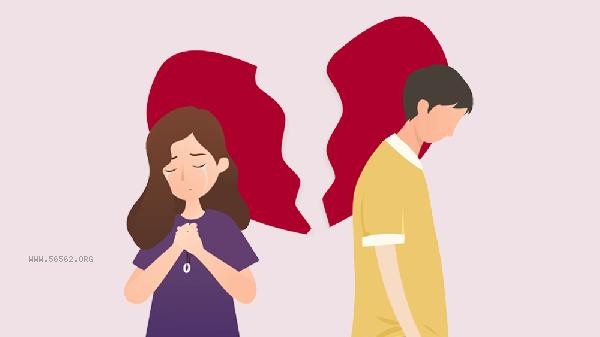Women who are asexual and loveless but unwilling to divorce are often influenced by factors such as economic dependence, social pressure, emotional inertia, child attachment, and self-worth denial. This type of marital status may exist for a long time, but the potential mental health risks need to be taken seriously.

1. Economic dependence
Some women are completely dependent on their spouses economically due to long-term absence from the workplace or low income. Losing marriage means losing basic survival resources such as housing, living expenses, and medical security. These women often lack channels for updating their vocational skills, face age discrimination when re employed, and have a strong fear of independent living.
2. Social pressure
Traditional beliefs stigmatize divorced women, especially in the middle-aged and elderly population. The demands from the original family to "save face", discussions among family and friends, and implicit discrimination in the workplace create multiple pressures. Some women would rather maintain a superficial marriage than bear the social label of 'marriage failure'.
3. Emotional inertia
Long term symbiotic relationships formed by marriage can lead to pathological dependence, even if intimate relationships disappear. The binding of shared memories and lifestyle habits leads to withdrawal reactions from separation, and some women equate the existence of marriage itself with a source of security. This inertia may be accompanied by the continuation of habitual caregiving behaviors towards spouses.

4. Child attachment
The deep binding between the mother's role and marital status is a common psychological dilemma. Concerns about single parent families affecting children's growth, property division leading to a decline in educational resources, and disputes over visitation rights are particularly prominent. Some women view maintaining marriage as a sacrifice for their children, and this perception may persist until their children reach adulthood and remain difficult to change.
5. Self value negation
Long term loveless marriage can erode self-identity and create a disastrous imagination of "no one accepting after divorce". Age anxiety and appearance anxiety are amplified, and the competitive pressure in the remarriage market is subjectively exaggerated. These women often have low self-esteem traits and equate their marital status with a measure of personal value. Women in this type of marital status need to establish a progressive self support system. Economic capital can be accumulated by cultivating basic vocational skills, reconstructing self-awareness through psychological counseling, and participating in women's growth groups to obtain social support. Legal consultation can help clarify feasible plans for property division and child custody. Cultivating independent interests and hobbies can help transfer emotional dependence, and regular exercise can improve physical and mental symptoms caused by marital stress. Be careful to avoid falling into the rationalization trap of "for the sake of the child", as the emotional deprivation experienced by children in a cold and indifferent family environment may outweigh the negative impact of single parent families.










Comments (0)
Leave a Comment
No comments yet
Be the first to share your thoughts!